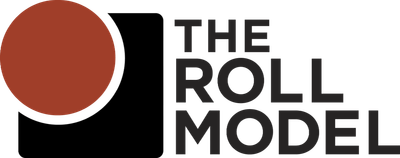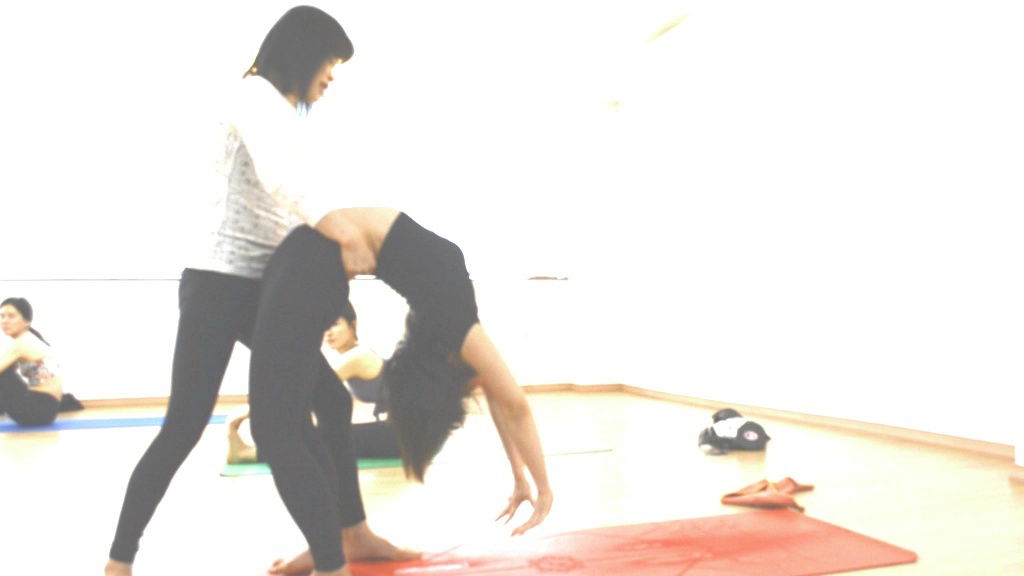RYT200 curriculum 커리큘럼
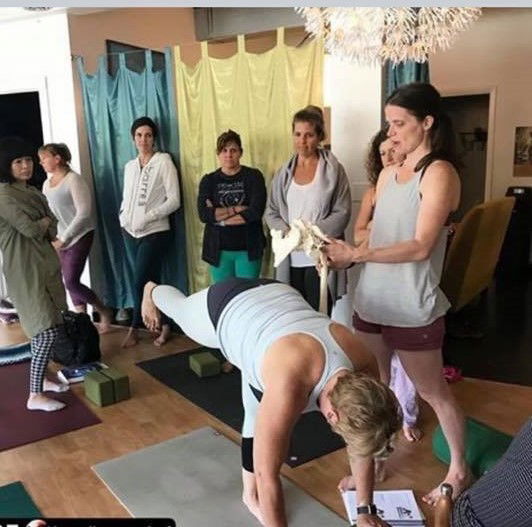

https://www.yogaalliance.org/SchoolPublicProfile?sid=7778&lid=9351
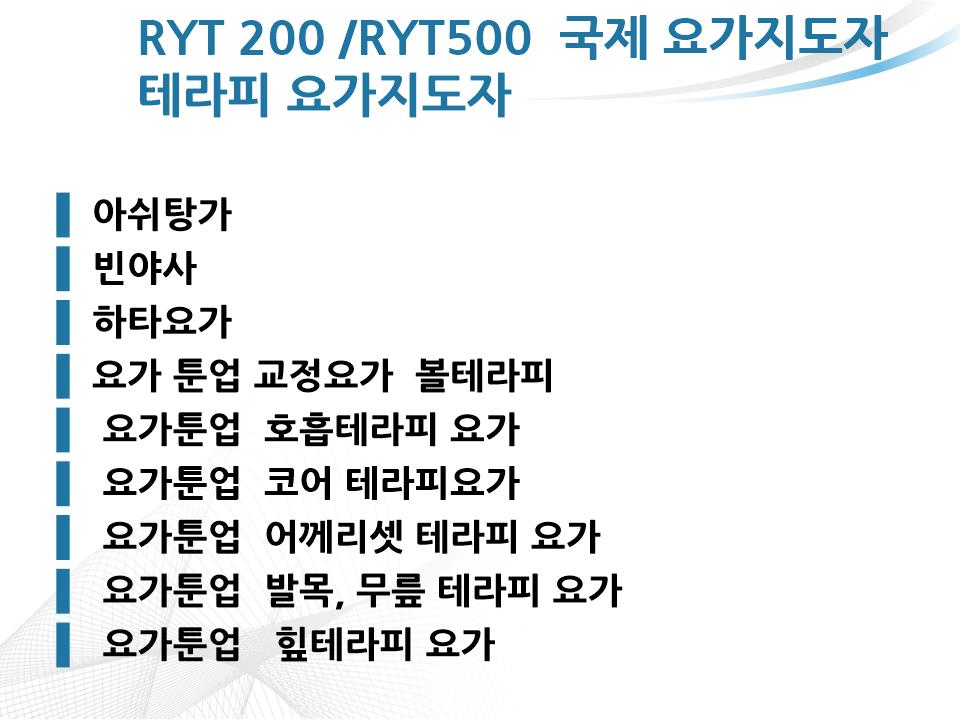
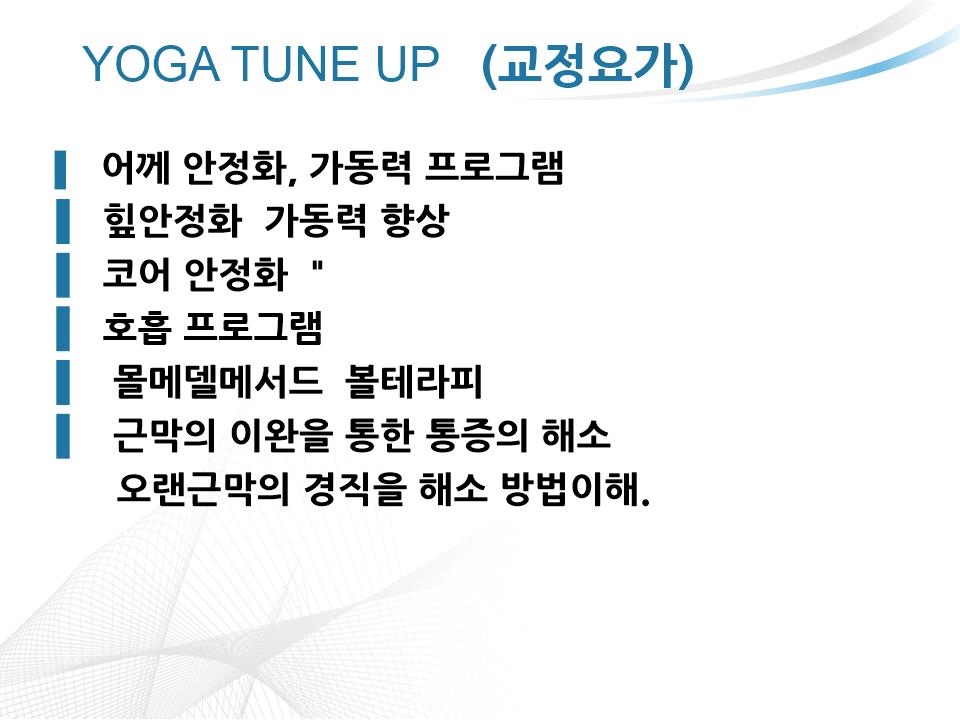
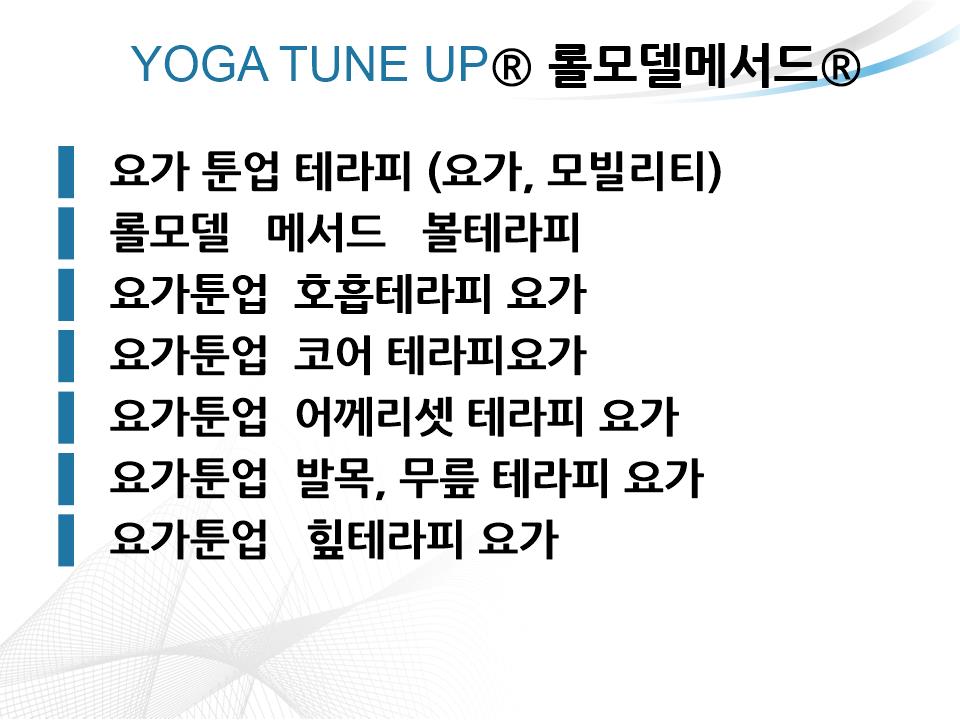

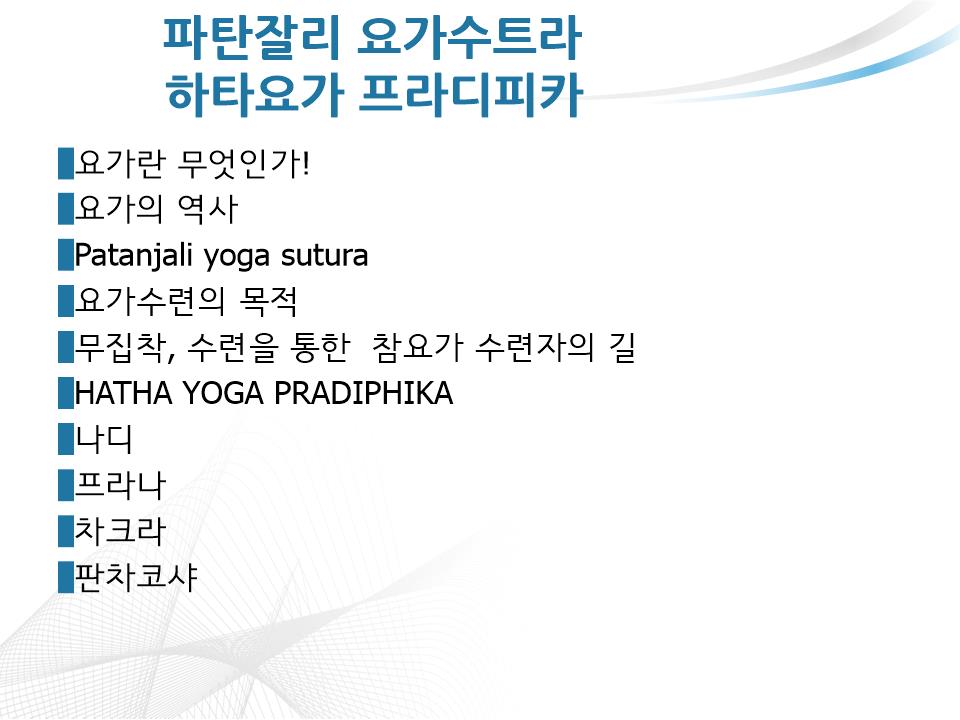
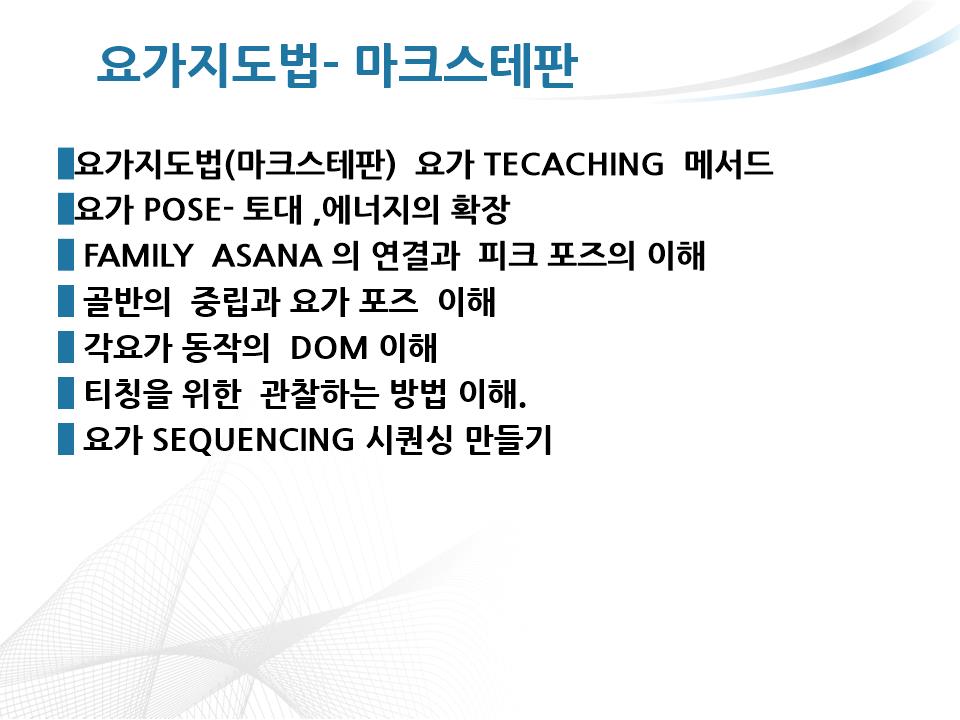
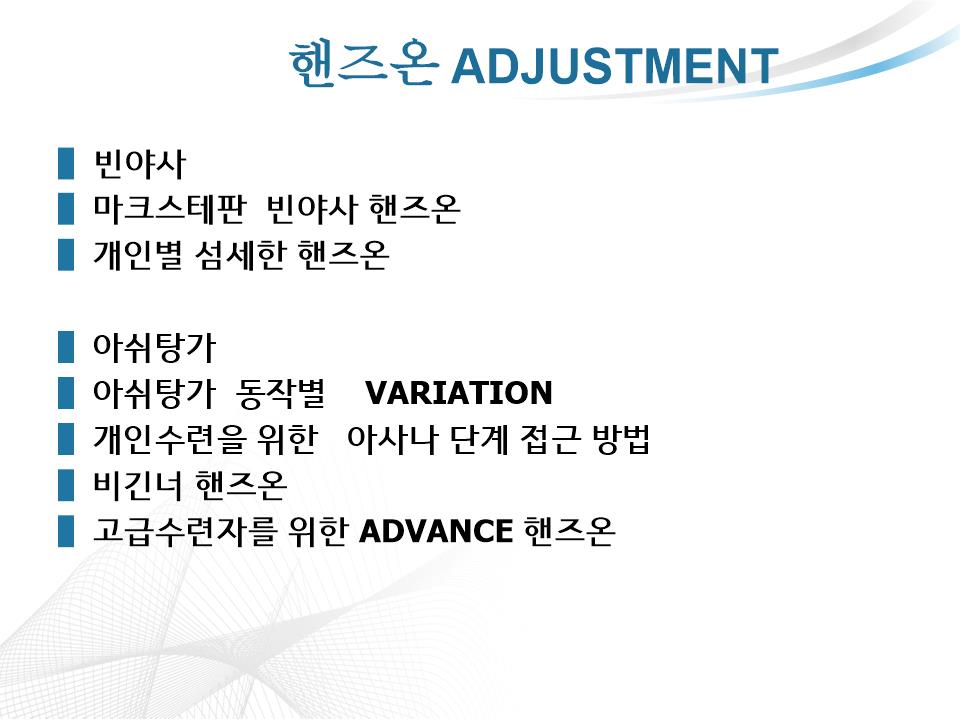
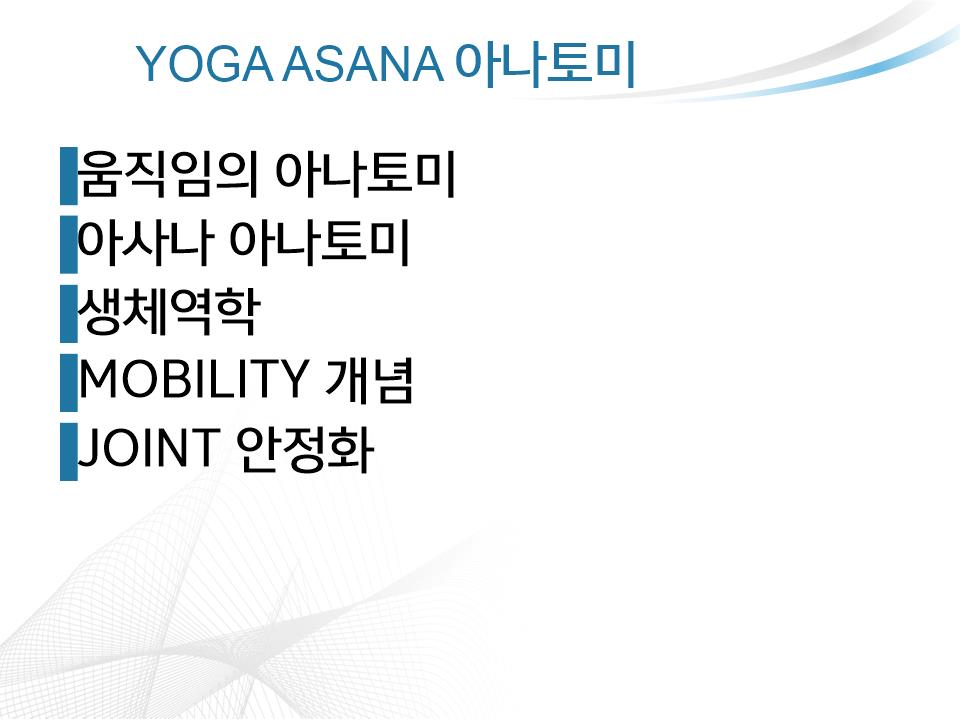
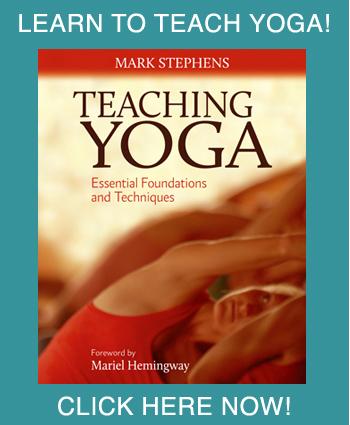
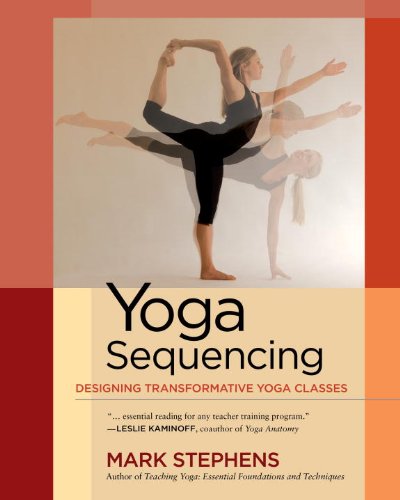

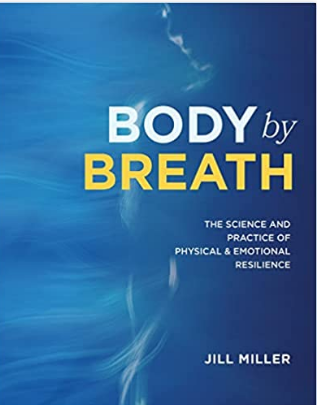
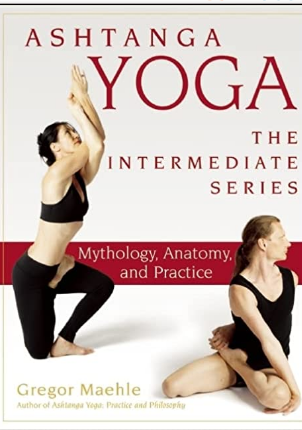
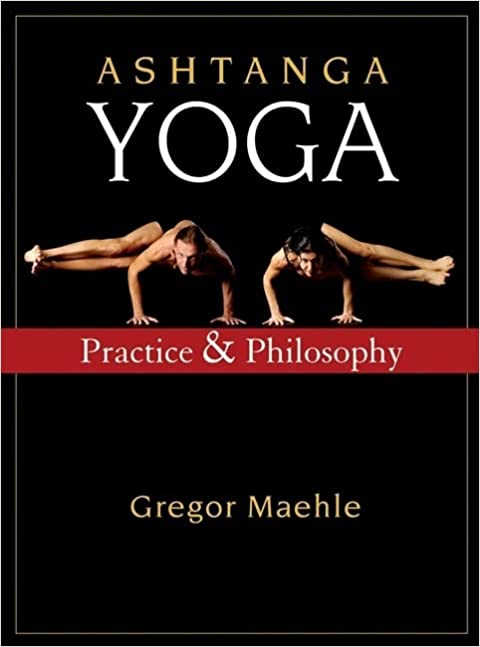
▶ RYT 200/500 핵심 커리큘럼
Skeletal system:
Types of Skeletal Systems ,Joints
- Skeletal system - Major muscles
Training in Asana is a major muscle.
A student's understanding of the skeletal system and Asana?
-Biology Biomechanics
Types of joint movement.
- Types of joint movement covered in training (e.g., flexion, Expansion, abduction,Related to Asana training.
How to Stabilize the Joint
- What is 'safe movement' for balance, stretching, and awareness within physical limits?
-Stress Response, Vagal Theory,
The Effect of Yoga Training
- Endocrine, digestive organ circulation.
-Range of motion
-Respiratory system - muscles that affect breathing
-History, Philosophy (Philosophy)
Definitions and Key Terms of Philosophical Yoga
How do you define yoga?
- Asana, Pranayama, correlation of meditation
Understanding Yoga philosophy- Yoga Sutras
Bhagavad Gita, Hatha Yoga Pradipika
How philosophy relates to self-reflection
- Self-reflection technique for yoga trainees.
-Yoga Ethics.
Is it integrated into the student's understanding of ethics?
understanding and responsibility.
-Teaching Methodology -
How to create a yoga program?
Prepare your trainees to teach safely.
how to do it
- Cueing (language, vision, body) Various types of expressions
the teaching method , and the hands-on adjustment put through
- Providing lifelong learning and lifelong learning opportunities
Mentoring.
Yoga is a process to learn about ourselves and to reach our full potential. It helps us expand our awareness and change our lives in ways that make us feel happier, healthier and more whole in our relationships with others in the world.
Accepting these basic values is the starting point for being a good yoga teacher.
The key to developing as a yoga teacher is to lead and teach members with the right 'training, creativity and confidence' based on knowledge.
It is a TTC course that prepares these courses systematically and acquires the skills and knowledge to continuously evolve as a teacher based on their own evolution, interest, and intention as the training time continues.
- It is time to develop deep skills and knowledge in teaching and practicing yoga.
pragmatic understanding of the main asana, including yoga: the principle of alignment of the asana pose, the principle of body movement, transformation asana, personal modification, risk
and Advantages, and learn about a variety of approaches, including Vinyasa's flow, alignment-based practice, yoga therapy, and professional style.
Learn the practical yoga anatomy actually used to teach yoga - how the body is structured, held together, moved and stable.
It is necessary to teach effectively and clearly to the intentions and conditions of students of all levels and of various students, and in accordance with the principle of clear ordering between each asana.
Learn how to plan classes.
- Also, the leadership course is accompanied by proper posture correction to fit the body of the practitioner. Every practitioner's body has some problems in a slightly different form. Asana training is a variety of factors that arise from everyday life (repeated posture required by the profession), and for practitioners who are unable to perform the right posture, correct posture correction according to the correct analysis of the instructor can be followed by effective yoga training. Can be.
- Yoga Tune Up Program - Therapy Yoga,.
It is a program that relieves pain through ball therapy, fascia therapy and yoga pose.
Therefore, it understands the human body more accurately and understands and heals the problem of the body more deeply.
- Yoga philosophy, Yoga scriptures -
Explore the wisdom received from ancient yoga traditions, learn yoga philosophy, ethics, history, what yoga training is aimed at, and what is the ultimate goal of yoga training?
"Understand the basic foundation of yoga"
You will learn the principles of yoga training by learning the system of training of asana, breathing and meditation.
Anatomy of Movement - Understand the role of the moving muscles of the body and understand the relationship between overuse, weakness, and lack of exercise, which causes improper movement.
- Yoga instruction (Mark Stefan) The various ASANA teachings required as yoga instructors also require skills. The teaching skills gained through Mark Stefan TTC in the United States will be systematically confident with hands-on adjustments.
-Teching practice : Yoga practice is selftransformation but as teacher we have to prepare how to
teach yoga asana, breath, meditaion according to the people who come to us with different body
conditions, and needs.
The main source of this transformative learning is the practice of the individual, and in the practice of yoga we gain the most insight into how best to share the practice with others.Because yoga is a process of self-transformation, there is no end to what we can learn, and no limit to how much we can grow and share.
▶ Anatomy 해부학
-골격 체계 – 주요 뼈
-골격 시스템 – 관절의 유형
-골격계 - 주요 근육
-아사나에 관여하는 훈련은 어떤 주요 근육
-골격체계와 아사나에 대한 수련생의 이해?
-골격 시스템 – 근육수축 유형
▶Biology 생체 역학
-관절 운동의 유형
-훈련에서 다루는 관절 운동 유형 (예 : 굴곡,
확장, 외전, 내전)?
-아사나 수련과의 관련성
-관절 안정화 하는 방법
-물리적 한계내에서의 균형, 스트레칭, 알아차림 위한 안전한 움직임 이란 무엇인가
-요가 수련에서 금기 사항, 나쁜자세 그리고
개인별 모디피게션의 적용 방법
-위의 사항과 요가의 움직임에 대한 이해?
▶Physiology 생리학
-Nervous system, incl. ‘fight, flight, freeze’
(신경계, 포함. ‘싸움, 도피, 경직)’
stress response, vagal theory,
overall mind- body connection
-스트레스 반응, 미주 이론, 몸과 마음의 연결
-심혈관 / 순환, 내분비,관련된 소화 시스템
-요가 연습 : 심혈관 / 순환과 관련하여
요가수련 의 영향
-내분비, 소화 기관 순환과 요가 연습에 대한 이해?
-호흡기 시스템- 호흡에 영향을 미치는 근육 그리고 요 가.
-호흡, 비자발적 대 자발적 호흡,
-공기가 몸에 들어가고 나가는 방법
▶History , Philosophy (역사, 철학)
-요가’역사적 맥락 요가의 연대기
-요가' 철학: 요가수련 혈통, 스타일, 방법론,
-철학 요가의 정의와 핵심 용어
-요가를 어떻게 정의하는가?
-아사나, 프라나야마,명상의 상관관계
-요가 철학에 대한 이해?( 요가 수트라스,
바가바드 기타,하타 요가 프라디피카)
-철학이 어떻게 자기 성찰과 관련되는지
-요가수련생에게 자기 성찰 기법 .
▶Ethnics 윤리
-요가수트라의 윤리 인식
-요가적 윤리관
-교육생들의 윤리에 대한 이해에 통합된가?
-이해와 책임
▶Teaching methodology 교수법학 -
-핵심 역량 구축 : 어떻게 훈련생들이 잘 다듬어진 수업을 안전하게 가르칠 수 있도록 준비할 수 있을 까?
-요가 프로그램을 어떻게 만들것인가?
훈련생들이 안전하게 가르칠 수 있도록 준비하는방법
-큐잉(언어, 시각, 신체) 다양한 유형의 표현을 통한 티칭방법 , 핸즈온 어드져스트먼트
-구체적인 수업관리 방법론
-교사로서의 역할?
▶Professional development 전문성 개발 지원 —
-비즈니스와 요가 직업
-평생 학습 및 평생 교육 기회제공
-멘토링
- 견습, 피드백(멘토링, 견습 또는 피드백 기회)
요가는 우리 자신에 대해 배우고 우리의 잠재력을 최대한 발휘하기 위한 과정이다. 그것은 우리가 더 행복하고, 건강하고, 세상의 다른 사람들과의 관계에서 더 온전하게 느끼게 하는 방식으로 우리의 인식을 확장하고 우리의 삶을 변화시키는 데 도움이 된다. 이러한 기본 가치를 수용하는 것이 좋은 요가 선생님이 되기 위한 출발점이다.
요가교사로서 발전하는 열쇠 는지식을 바탕으로한 바른 수련, 창의성, 자신감 이 회원을 이끌고 가르칠 수 있습니다. 이러한 과정을 체계적으로 준비하며 수련의 시간이 계속되면서 자신의 진화와 관심, 의도를 바탕으로 교사로서 지속적으로 진화할 수 있는 기술과 지식을 습득하는 TTC 과정입니다.
- 요가를 가르치고 수련을 하는 데 있어 깊이있는 기술과 지식을 개발하는 시간이 됩니다
요가를 포함한 주요 아사나를 철저하고 실용적으로 이해하라. 아사나 포즈의 정렬 원리, 신체 움직임의 원리, 변형아사나, 개인별수정, 위험
및 이점,등의 애해를 빈야사의 흐름, 정렬 기반 연습, 요가 치료 및 전문 스타일을 포함한 다양한 접근법에 대해 배웁니다,
요가를 가르치는 데 실제 사용되는 실용적인 요가 해부학을 배워라 - 신체가 어떻게 구조화되고, 함께 고정되고, 움직이고, 안정되는가! 요가
를 모든 수준의 학생과 다양한 학생의 의도와 조건에 효과적으로 명확하게 가르치는 데 필요하며, 각 아사나간의의 명확한 순서화 원칙에 따
라 수업을 계획하는 방법을 배웁니다.
- 또한 지도자 과정은 수련자의 몸에 맞게 적절한 자세 교정과 함께 합니다. 모든 수련자의 몸은 약간의 다른 형태로 약간의 문제를 가지고있습니다. 아사나 수련은 일상 생활에서 기인하는 여러가지 요인으로 (직업이 요구하는 반복되는 자세) 인해 바른 자세를 할수 없는 상황에
있는 수련자에게는 지도자의 정확한 분석에 따른 에 바른 자세의 교정이 이루어 지면 효과적인 요가 수련을 이어 갈수 있습니다.
 - Yoga Tune Up® 프로그램-
- Yoga Tune Up® 프로그램-
테라피 요가,교정운동으로 미국 요가툰업의 프로그램으로 목,어께 허리, 골반, 발목, 등의 움직임에 관여하는 근육을 깨워 치유하는
프로그램으로 볼테라피 통한 통증완화 테라피와 근막테라피와 교정요가 프로그램을 함께 배우게 되므로 인간의 몸의 조금더 정확히
이해하고 자신의 몸의 문제를 더욱 깊게 이해하고 치유하고 이를 바탕으로 요가 지도자 로써의 자신감 과 역량이 더욱 높아 집니다.
-요가 철학, 요가 경전-
고대 요가 전통으로부터 받은 지혜를 탐구하고 요가 철학, 윤리, 역사 를 배우고 요가 수련이 지향하는 것과 요가 수련의 최종 목표가 무엇 인
지를 이해 하여 요가의 기본 토대를 단단히 하고 요가의 철학의 깊이를 가늠한다. 인도 요가 대학 카이발 야다마 에 배운 요가고전을 통해서
아사나 ,호흡, 명상의 수련의 체계에 를 익히고 , 요가 수련의 원리를 이해하게 됩니다.
-ANATOMY -
요가 수련의 도구가되는 인간의 몸을 이해를 통해 자신을 몸을 알게되므로 자신의 몸의 발란스를 맞추는 시작이 됩니다.스스로 인지 하지 못
하는 잘못된 자세는 바르게 개선이 되지 않습니다.자신의 몸의 인지를 통해서 각성이 일어나고 아사나 원리를 이해 하여 자신의 몸에 맞는
요가 수련 방법을 알게되므로 요가 지도자로 써 회원의 각기 다른 몸에 대한 이해의 토대가 설립됩니다.
운동사슬- 신체가 하나로 연결되어 서로 어떠한 영향을 미치고 어떻게 변화되는지 기본 지식을 습득합니다.
움직임의 아나토미 - 신체의 움직이는 각근육의 역활을 이해하여 바르지 못한 움직임을 일으키는 원인즉 과사용 , 약함, 운동부족의 관계을
이해한다.
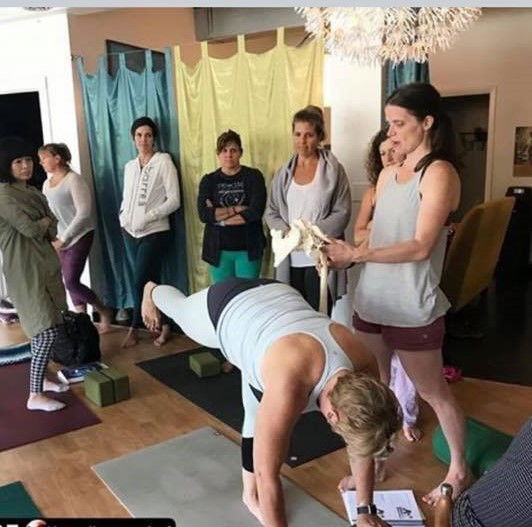 -요가지도법 (마크스테판)
-요가지도법 (마크스테판)
요가 지도자로써 요구되는 다양한 ASANA 티칭에도 기술이 필요합니 다. 미국의 마크 스테판 TTC 를 통해 얻은 티칭 기술을 핸즈온 어드져스트 먼트와 함께 체계적으로 자신감이 있는 요가 지도의 모습을 갖추게 됩니다 .
요가를 다양한 학생의 의도와 수준과 조건에 효과적으로 명확하게 가르치는 데 필요한 아사나의 구분과 각 아사나간의 명확한 순서화 원칙 에 따라 수업을 계획하는 방법을 배웁니다
-TECAHING :
10년간의 요가지도자로서 티칭을 계속 해온 원장의 티칭을 통해 요가 티칭의 핵심을 경험하게되고, 요가 지도자로써 회원을 지도하고 이끌어 나갈수 있 는 TEACHING 발표를 부족한 점을 발견하고 개선하고 발전시키는 기회를 갖게 됩니다. 수련의 깊이가 깊어지면 개인별로 아래의 사진처럼 조금 한발 먼저 고급단계의 수련의 이어집니다.
이 프로그램에서 우리는 끝없이 탐구, 정제, 심화, 확장 및 학습을 모색합니다. 이러한 변화 학습의 주요 원천은 개인의 연습이며, 요가의 연습에서 우리는 다른 사람들과 연습을 가장 잘 공유하는 방법에 대한 가장 많은 통찰력을 얻습니다. 요가는 자기 변형의 과정이기 때문에, 우리가 배울 수 있는 것에는 끝이 없고, 우리가 얼마나 많이 성장하고 공유할 수 있는지에 대한 제한도 없다.
